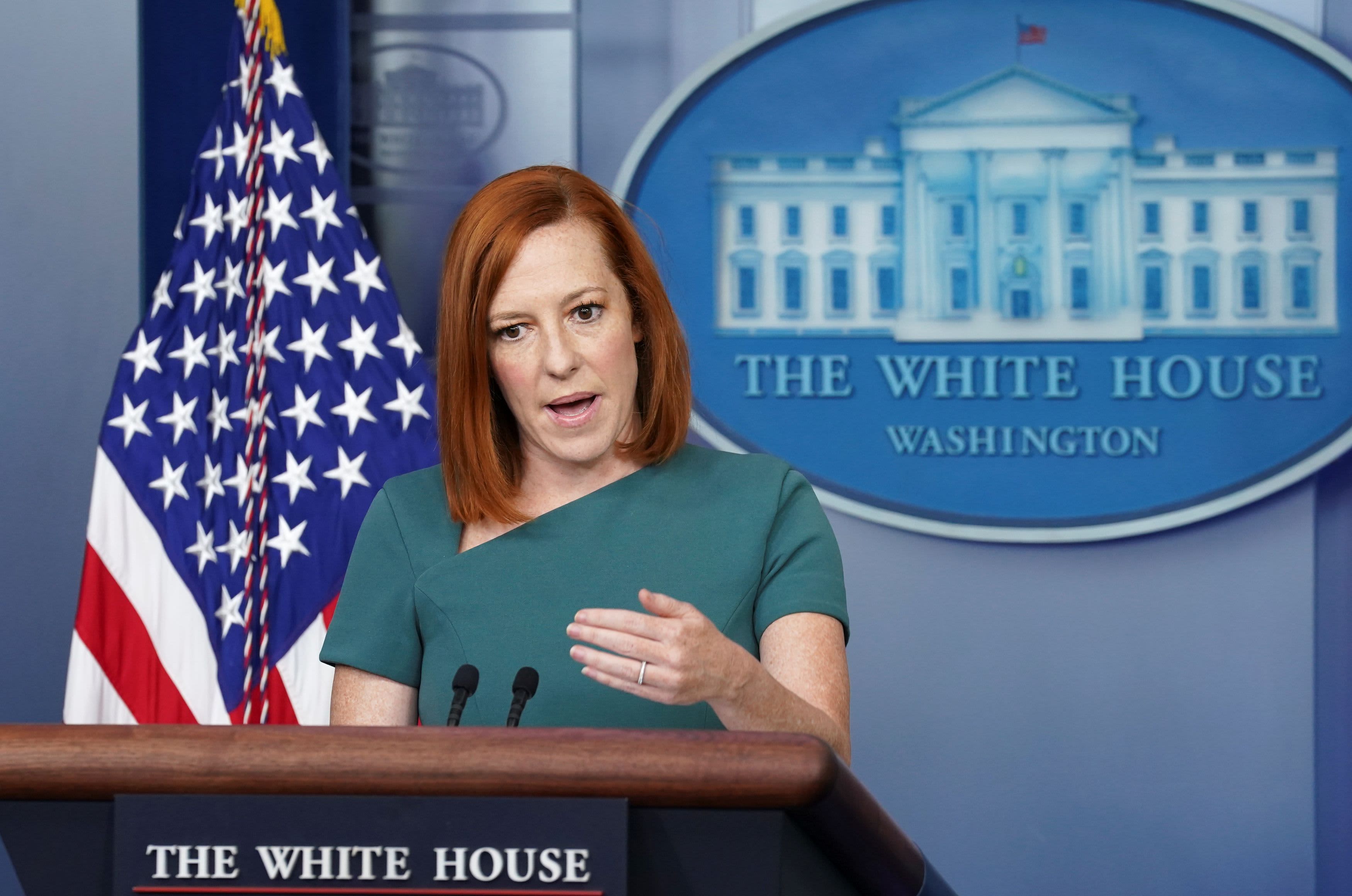
White House Press Secretary Jen Psaki speaks during a briefing at the White House in Washington, U.S., May 20, 2021.
Kevin Lemarque | Reuters
WASHINGTON — White House aides working on a bipartisan infrastructure deal made a counteroffer on Friday to Republican senators, reducing their initial proposal by $600 billion.
The latest offer would cost $1.7 trillion over a decade, White House press secretary Jen Psaki said.
In order to trim the original $2.3 trillion plan down to $1.7 trillion, the White House would reduce funding for rural broadband, as well as for bridges and roads.
It would also shift funding for research and development, small businesses and supply chain improvements from this package over to separate legislation that’s being debated in Congress.
The counteroffer would keep several of the provisions in Biden’s plan that Republicans deeply oppose, however, which could dim the chances of ultimately reaching a bipartisan deal.
These include money to help pay eldercare home health aides, and funding to expand the use of electric vehicles.
Psaki called the counterproposal “the art of seeking common ground.”
Psaki said a video conference call between key GOP senators and White House negotiators began shortly after lunch on Friday.
The White House team includes counselor to the President Steve Ricchetti, director of legislative affairs Louisa Terrell, National Economic Council director Brian Deese, Commerce Secretary Gina Raimondo and Transportation Secretary Pete Buttigieg
As the second week of formal negotiations comes to a close, Republicans and Democrats appear no closer to a bipartisan compromise than they were at the start.
Republicans have already proposed a $568 billion infrastructure bill with a narrow focus on hard infrastructure, rural broadband and mass transit.
Psaki also suggested that the White House counteroffer still includes one of the GOP’s red line issues: An increase in the corporate tax rate.
Senate Minority Leader Mitch McConnell has said that any infrastructure plan that includes a corporate tax increase would be opposed by the entire Republican caucus.
Shortly after Psaki announced the counteroffer, Reuters reported that Republicans do not see it as “a significant improvement,” citing a source.
This is a developing story, please check back for updates.



